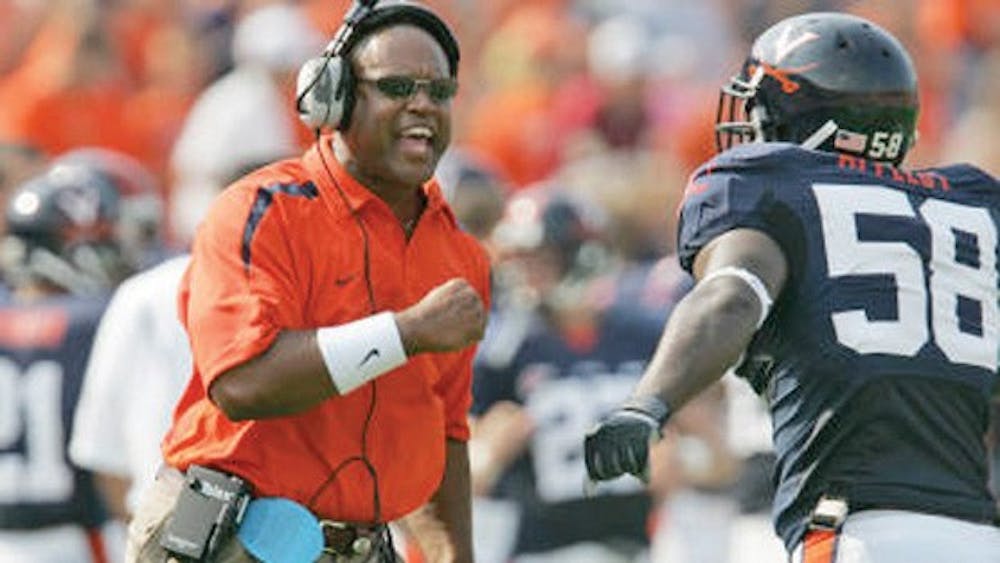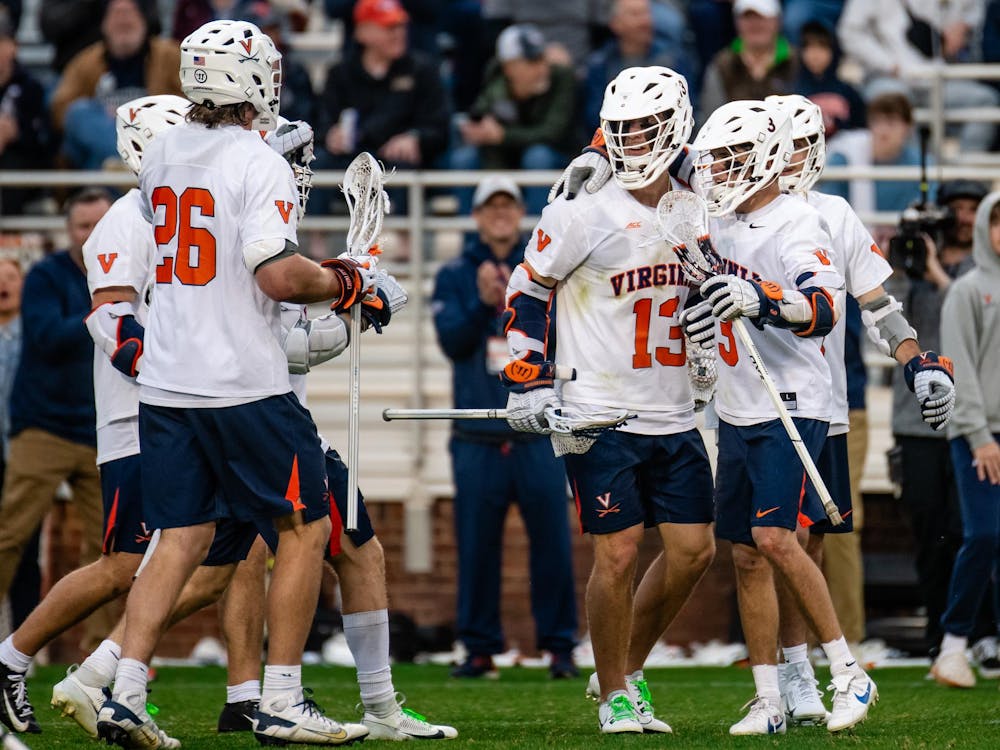When Mike London captained Virginia to an eight-win season and Chick-fil-A Bowl berth, I never imagined I would need to defend his job just one year later. After London butchered the Cavaliers’ closing sequence against Virginia Tech, however, many U.Va. students have called for his head.
Today’s post-game comments ranged from, “This is ridiculous. Can we please find a coach who understands how to manage the clock?” to “Mike London is single-handedly the worst coach in college football!!”
London’s timeout use — or lack thereof — was admittedly an indefensible, inexplicable decision. During the game’s waning seconds, I futilely screamed at the television for a whistle. We may not have beaten Virginia Tech with an extra 45 seconds, but the team deserved an opportunity to try.
Worse, the botched decision follows a series of boneheaded mistakes this year: a crippling quarterback controversy, 12-men-on-the-field-gate, even the failed fake field goal against Tech earlier that game. Such critical errors raise red flags about London’s ability to manage games successfully.
But that doesn’t mean London can’t be a successful — or even a great — college football coach at Virginia.
The best college coaches often fail in the NFL. Steve Spurrier won five SEC Coach of the Year awards and a National Championship at Florida yet stumbled to a 12-20 record as the Washington Redskins’ head coach. Did Spurrier forget how to coach in D.C.? It seems unlikely, especially considering Spurrier has since guided South Carolina to its first SEC division title and 11-win season in program history. I also doubt Nick Saban experienced any coaching concussion during his 15-17 Miami Dolphins tenure. He has two national championship rings at Alabama to prove it.
Good college coaching extends much deeper than in-game decisions, because in-game decisions become largely irrelevant if the team’s players cannot execute them. Unlike professional coaches, who inherit a roster of high-quality players, college coaches must attract their own talent. Game decisions are therefore less crucial to any college coach’s ultimate success.
As a lifelong Gamecock fan, I’ve watched Spurrier throw away timeouts like candy at a parade. I’ve also watched ESPN develop a crush on a school it once ignored and seen recruits pay attention to all those nationally televised games. Spurrier has landed the last four South Carolina “Mr. Football” winners, while the previous six recipients opted out of Columbia.
London similarly keeps the state’s best recruits in a Cavalier uniform. His predecessor, Al Groh, notoriously severed ties with local high schools and pulled just four in-state recruits in his 2008 class. London, meanwhile, hails from Hampton, Va. and lured 19 of his 2011 and 2012 recruits from the talent-rich Tidewater region. Virginia Tech, which once held a monopoly on in-state students, hauled just five 757-area recruits during the same period.
More importantly, London not only attracts players to Virginia but helps them blossom while here. Just as student-athletes juggle myriad responsibilities outside the playing field, a college coach’s job demands so much more than Saturday decisions.
A college coach must become a role model for his athletes; he must demand their respect. As a former NFL player and Richmond detective, London undoubtedly earns admiration in his locker room. He uses that authority to encourage players not just on the field, but in the classroom and community.
Last year, I asked then-senior wide receiver Kris Burd about the differences between his current coach and his former one, Al Groh. Rather than simply citing the team’s winning record, Burd praised London’s genuine care for his student-athletes.
“Coach London’s more focused on us as people, us as men, us as fathers down the road,” Burd said. “Whenever your coach is so heavily involved with you as a person, I feel like you want to play harder for him when the game time comes around. It’s definitely a closer relationship between our team and our coaches than it was when Coach Groh was here. Coach Groh was a great coach too, but I feel like our players now can talk to the coaches about any situation and we didn’t have that before.”
Self-evident as it seems, players play harder for coaches they like. At the end of Groh’s final 3-9 season at Virginia, I consequently joined the chorus singing, “Groh must Go.” At the end of London’s 4-8 campaign at Virginia, I’ll yell just as loudly “London must stay.”
Three seasons is too small a sample size to judge a coach’s true potential, particularly when London earned Virginia’s first bowl bid since 2007 last year. If Michael Rocco had thrown a touchdown pass instead of an interception on Virginia’s final drive, fans would likely want London’s coronation instead of axing. The backlash from Saturday’s game seems like a predominantly knee-jerk reaction, a reflection of today’s win-now college coaching environment.
Despite a poor season, I still think the reigning ACC Coach of the Year knows how to coach. But even if I concede that London must improve his in-game management, I refuse to concede we can’t win with him at the helm. I believe he is a winner and will win at Virginia.
London can designate play-calling duties to other coaches. Bill Lazor could call timeouts. But I doubt the program can find a better face for Virginia football — a coach with more passion for his players, for his community; a coach more committed to maintaining the University’s high academic standards while simultaneously returning its winning prestige.
Earlier this season London told his fans, “Hang with us. Don’t leave. Hang with us. We’ll be fine. We’ll be all right. We need your support. I’ll coach the guys harder; I’ll coach the guys better. We’ll be representatives of this University.”
I’m hanging with London. Other Virginia students should do the same.







